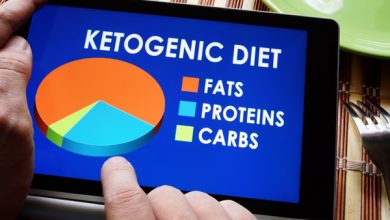Keto 101
How Can Keto Help With High Blood Pressure Or Type II Diabetes?

The ketogenic diet is a nutrition plan used by health-conscious men and women to control weight and athletic performance.
Newer research suggests that high fat/ very-low-carb diets have other benefits besides the obvious weight loss: They may help control glucose, triglycerides, insulin, and body weight in people with diabetes as well as lower your blood pressure. Research findings mentioned below show the keto diet as an effective tool to manage the symptoms of type 2 diabetes, along with exercise and medication.
Cutting through the fat: what is diabetes?
Let’s refresh your knowledge of medical terminology. Diabetes is a metabolic disease that elevates levels of your body’s main energy source (glucose)
90% to 95% of diabetics have Type 2 diabetes, which is a lifestyle disease (high body weight, poor exercise, and eating habits). Improving diet and other lifestyle habits manage symptoms.
Diabetes produces higher glucose levels leading to increased production of insulin, elevated levels of the energy-storing fat molecules called triglycerides and generally increased body weight.
Because of the extra sugar, red blood cells called hemoglobin are coated with sugar. These “sugar-coated” hemoglobin cells are called hemoglobin A1C- also known as HbA1c.
Doctors will often measure the proportion of these to regular red blood cells to determine if you have diabetes.
High blood sugar damages blood vessels and triggers a variety of illnesses. Unmanaged diabetes doubles the risk of cardiovascular diseases such as coronary artery diseases and stroke. High blood pressure often accompanies diabetes. (More about that later)
Diabetes is nearly the most common chronic disease in the world.
Researchers are looking for a more natural method to prevent and manage symptoms of diabetes. Since the keto diet severely reduces carbs, some think the keto diet might be a dietary treatment.
The Keto connection: can fat fight diabetes?
At Duke University, researchers recruited 28 overweight male diabetics for a 16-week clinical trial. Subjects followed a low carb/keto diet (LCKD) aimed at eating less than 20 grams of carbs per day on reduced dosages of diabetes medication. They were medically supervised. In the 21 subjects who completed the study, they experienced a 16% drop in Hemoglobin Ac during the 4 months. An average decrease in weight of 19.2 lbs, and their average blood glucose levels decreased 16.6%, and their average triglyceride levels decreased by 41.6%.
Most patients reduced or discontinued their diabetes medications.
Key Takeaways: Sticking to a very low carbohydrate ketogenic diet (LCKD) reduced key indicators related to type II diabetes in overweight, male subjects (BMI, body weight, glucose levels, triglycerides, and A1C).
Recommendations: If you are diabetic (type 2) and overweight, a ketogenic diet could be a solution to manage symptoms and reduce dependence on medication.
High-fat diets: prevention for diabetes?
Because ketogenic diets are high in saturated fats, many mistakenly suspect that they are unhealthy. The research shows that very-low-carb diets are beneficial for overweight and obese people who suffer from type 2 diabetes. Does the keto diet influence the risk of type II diabetes in healthy subjects?
To answer this, researchers recruited 83 non-diabetic subjects (average age of 48 and BMI of 33.) They divided them into 3 groups and assigned each group to one of three equal-calorie diets for 8 weeks.
- Group 1 on the Very Low-Fat diet (VLD) consisted of 70% carbs, 10% fat, and 20% protein.
- Group 2, on the high unsaturated fat diet (HUF) consisted of 50% carbs, 30% fat, and 20% proteins. About 90% of the fat calories were from unsaturated fats.
- Group 3 called the very low carb diet (VLCARB), consisted of 4% carbohydrates, 61% fat, and 20% proteins. About 20% of the fats were saturated.
There was a similar loss in body fat and overall body weight in all three diets. However, they noted that the VLCARB ketogenic diet was “more effective in improving tracylglycerols (decreased by 39.9%), HDL cholesterol, fasting and post-meal glucose and insulin concentrations (insulin levels decreased by 33.6%)
Believe it or not, keto diet’s effect on blood sugar has to do with how to lower your blood pressure through diet
First, you cut out all the simple sugars. You know what they are, anything with table sugar, high fructose corn syrup and corn syrup, which explains why people who change their diet see some improvement in weight and blood pressure as soon as they remove the simple sugars (candy, sugared drinks and pastries) from their diet.)
Second, limit your consumption of other sources of carbs (any type of bread, rice, pasta, tortilla, potato, corn and carrots). The carbohydrate in fruit is fructose, and combined with other forms of glucose has the same effect as table sugar (raise your blood pressure, as well as halt or cause weight gain)
Third, if you are taking hypertension medications, have your doctor closely monitor your blood pressure. It will drop within 2-4 weeks of making these dietary changes.
Maintaining ketosis is really important for weight loss and blood pressure control. Exogenous ketone salts aid significantly in maintaining ketosis. They ease the difficulty of maintaining ketosis from day to day.
Correcting your mistakes is critical and important, not the fact you make them.




